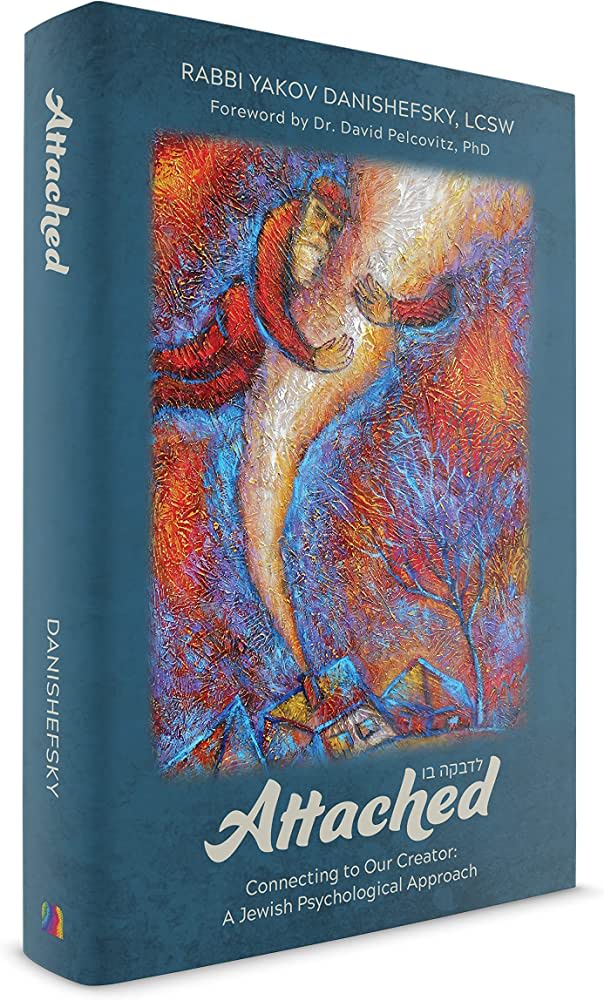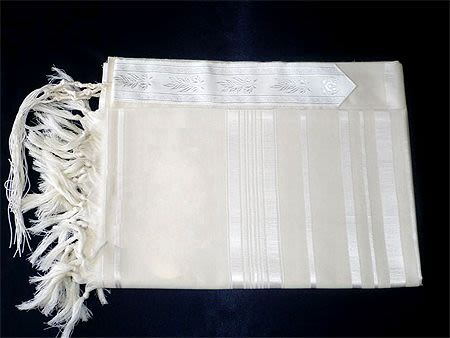
Hashem Listens – Part 2
Rebbe Nachman of Breslev explains that even if a person is so choked up that he or she can't speak, Hashem will still hear the cry of the heart...

Nothing can serve as a substitute for Hashem's compassion. We resemble rich kids with a rich Father in Heaven Who created us in order to show us His compassion. Who is senseless enough to believe that such a Father won't answer our prayers? The truth is our prayers aren't answered because we don't believe in Him strongly enough, for if we really believed in Hashem, we would cry out to Him from the depths of our hearts!
So many people write me with problems in health, finances, peace in the home, and the like. I advise many of them to talk to Hashem for an hour a day. Many respond that they have no time! This is the reaction of a person who is a captive in the Yetzer's prison. How can anyone say that he or she has no time for Hashem?!? They have time for doctors, lawyers, psychologists, repairmen, matchmakers, accountants and employment agencies – just to name a few – but they have no time for Hashem? That's like the son of the rich man who walks around in rags: people say to him, "Why don't you ask your wealthy father for a few dollars?" The disheveled young man answers that he has no time.
Effective prayers are sincere and humble appeals for Hashem's mercy. We must come to the realization that we deserve nothing. Many people say to me, "I didn't ask to come down to this world – why should I have to pray?" According to the Zohar, you begged to come down to this world in order to receive your soul correction. A famous parable by the Maggid of Dubnov elaborates on this concept.
In a little Polish hamlet, there lived an elderly cobbler with his two unmarried daughters. Not a single matchmaker had succeeded in finding a match for either daughter. Why? The cobbler’s older daughter was the sweetest girl in the hamlet with a kind and loving heart, but she was ugly. The younger daughter was a blond and blue-eyed beauty, but she had the mouth of a fishwife.
A new family, a tailor and his two sons, moved to the hamlet. One of the tailor’s sons was blind, the other was deaf. Moishele, the local matchmaker, pounced on the opportunity. Two perfect matches! He invited the cobbler and the tailor to tea and proposed that the blind young man marry the ugly daughter and the deaf lad marry the sister with the nasty mouth. Both sides agreed, and the match was sealed by a handshake and a l’chayim.
Both young couples lived in absolute bliss until the day when a famed German physician visited the hamlet. People with previously incurable medical problems flocked to the doctor, among them the tailor’s two sons. Utilizing relatively routine procedures, the famous physician cured both brothers: the deaf brother could now hear perfectly; the blind brother walked out of the doctor’s clinic with 20-20 vision.
The first brother hurried to his little wooden house and called out, “Darling, my beautiful wife, I’m home!” A screech chilled his blood. “You a good-for-nothing shlepper! Where have you been all day long? Why don’t you bring home some money, you lazy slouch?!” The miserable husband, with his new sense of hearing, fled for his life.
Meanwhile, the second brother, with his new eyesight, came home to his sweet turtledove. “Honey, I’m home.” When he saw the hatchet face that greeted him at the door, he froze in his tracks. He, too, fled for his life.
Both brothers appeared before the local Dayan – the religious court judge. “Your honor, not only do we want our money back from the doctor, we want to sue him for ruining our lives”. The Dayan summoned the doctor, and began legal proceedings immediately. The brothers stated their case again, and the doctor stated his rebuttal.
The wise Dayan stroked his long beard for a moment and addressed the doctor. “Doctor, would it be difficult for you to take away the one brother’s hearing and return the second brother to his blind state?”
“Not at all, Your Honor,” stated the doctor. “If the court so orders, I’ll be happy to do it for free.”
“Then so be it,” declared the Dayan. “The case is closed.”
“Wait a minute!” protested the brothers. “We don’t want to go back to being deaf and blind!”
“Aha!” nodded the Dayan. “So you do enjoy the benefits of the doctor’s services. Your case is invalid and you are certainly not entitled to a refund. Case closed!”
* * *
Cherished friend, if God were to ask you right now to return your life to Him, would you be willing? I don’t think so. Since you desire to continue living, you do enjoy the benefits of life. Your soul requested the privilege of coming down to this world so it could attain its correction – and ultimately return to the spiritual world for the eternal reward of basking in Hashem's light. Our sages have said that all the souls in this last generation before Moshiach have come to rectify a lack of emuna. Hashem is doing us a favor by putting us in a position where we must turn to Him. If we don't turn to Him, we can't learn emuna and can't correct our souls. Our suffering would then be in vain; we would have failed to complete our mission on this earth.
Halacha requires that we pray like a poor person in a doorway who is asking for charity. "Hashem, take pity on me, give me a gift." If we believe in the power of prayer, then the duty to pray is not a mere a pain in the neck. We often see people mumbling a few words then running out of the synagogue like little kids after the bell rings at the end of a school day. If people would really believe in Hashem, they would beg like a poor person. The Bet Yossef, Rabbi Joseph Caro, says that a person shouldn't pray as if he deserves something. As soon as a person slams a fist on the table and makes demands of Hashem, saying that he deserve a reward, Hashem says OK, "Let's open your file and see exactly what you deserve!" All of a sudden, the person discovers hundreds and thousands of transgressions that Hashem never punished him for. One must beg and humbly cry out for charity – a free gift.
So why are do people walk around like the tattered son or daughter of the rich person with the torn clothes? It is because their lips are sealed and their hearts are locked up tight. They lack emuna!
When a person truly believes in Hashem's promise – I will listen, for I am compassionate – he or she will pour their hearts out in prayer. They will use every available opportunity to open the gates of salvation. Their sincere, deep, heartfelt requests for mercy will come flowing out of their hearts with tears. Rebbe Nachman of Breslev explains that even if a person is so choked up that he or she can't speak, Hashem will still hear the cry of the heart.
The Torah stresses that Hashem comes to the aid of those who have no other hope of salvation, such as the convert, the orphan and the widow. Hashem takes special pity on the brokenhearted. Their tears are dearer to Him than a sacrifice in the Holy Temple.
You are a beloved son or daughter of Hashem . . . why not cry out to Him? Why succumb to stress, anxiety and depression, and then resort to artificial cures? King David, Moshiach, promises us in Psalm 147 that Hashem is the physician to the broken hearted. The best cardiologist in the world can do nothing about a broken heart. Only Hashem can fix a broken heart. Why not cry out to Him?
Hashem listens. That's His promise to us.













Tell us what you think!
Thank you for your comment!
It will be published after approval by the Editor.